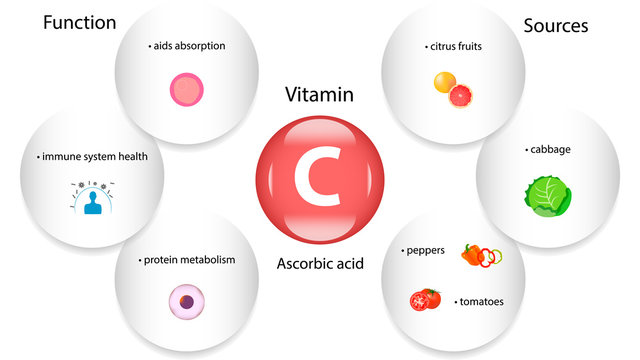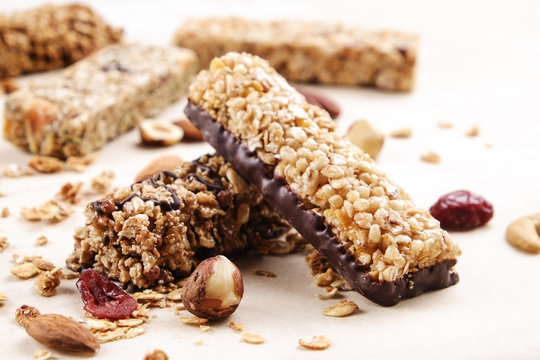As the saying goes, you are what you eat. And if you want to be healthy and strong, protein is an essential part of your diet. But what exactly is protein and why is it so important? In this blog post, we’ll dive into the world of nutrition to explore the benefits of protein and how it can help you maintain a balanced and healthy lifestyle. Whether you’re a fitness enthusiast or just looking to improve your overall well-being, understanding the role of protein in your diet is crucial. So let’s get started!
Understanding the Role of Protein in Your Diet
Protein in Your Diet is essential for maintaining good health and ensuring that your body functions properly. It plays a vital role in building and repairing tissues, making enzymes, hormones, and other important chemicals in the body. Protein is made up of smaller molecules called amino acids, which are commonly referred to as the “building blocks” of protein.
Without enough protein in your diet, you may experience muscle weakness, fatigue, slow healing times from injuries or illnesses, and even hair loss. The human body cannot produce all necessary amino acids on its own – this means that it’s crucial to get them through food sources.
It’s important to consume a balanced amount of protein regularly since your body can’t store extra amino acids for later use like it does with fats or carbohydrates. By incorporating quality sources of dietary protein into meals daily can help maintain stable blood sugar levels while also helping people feel more satisfied after meals so they don’t overeat later on during snacks.
Definition of Protein
Protein is one of the three macronutrients that are essential for a balanced and healthy diet, alongside carbohydrates and fats. It is made up of long chains of amino acids that perform various functions in the body, including building and repairing tissues, producing enzymes and hormones, supporting immune function, and transporting oxygen throughout the body. Protein can be found in both animal-based sources like meat, fish, eggs, and dairy products as well as plant-based sources such as legumes (beans), nuts, seeds or tofu. The amino acids present in protein are important because they cannot be created by your body on its own; they must come from the food you consume to maintain good health. Without enough protein in your diet or a lack of specific amino acids needed for proper functioning could lead to muscle atrophy impairment on cognitive development among other negative effects.

Amino acids
Amino acids are the building blocks of protein. They play a crucial role in many bodily functions, including forming enzymes and hormones, repairing tissues, and transporting molecules throughout the body. There are 20 different types of amino acids that can be combined to create different proteins.
Out of these 20 amino acids, our bodies can produce 11 on their own. These are known as non-essential amino acids. However, there are nine essential amino acids that our bodies cannot produce on their own and must be obtained through food sources.
It’s important to consume a variety of protein sources so that your body gets all nine essential amino acids required for optimal health. This is especially important for vegetarians or vegans who may not have access to complete protein sources like meat or dairy products.

Types of Protein
Protein types can be divided into two categories: complete and Incomplete proteins. Complete proteins, as the name suggests, contain all nine essential amino acids that our body cannot produce on its own. Animal-based protein sources such as meat, dairy products, fish, and eggs are examples of complete proteins.
On the other hand, incomplete proteins lack one or more essential amino acids. Plant-based protein sources such as legumes, grains, nuts, and seeds are usually incomplete but combining different plant-based sources can provide a complete protein profile. It is important to understand which type of protein you’re consuming to ensure that you’re getting enough essential amino acids in your diet for proper bodily function and development.

The Benefits of Including Protein in Your Meals
Protein is an essential nutrient that plays a crucial role in maintaining a healthy body. It is important for building and repairing tissues, producing enzymes and hormones, and supporting immune function. Including protein in your meals can also help you feel fuller for longer periods of time, which can aid in weight management. Additionally, protein is necessary for the growth and development of children and teenagers.
Studies have shown that consuming adequate amounts of protein can help improve muscle mass and strength, reduce the risk of chronic diseases such as heart disease and diabetes, and even improve brain function. Protein can also help maintain healthy skin, hair, and nails.
It is important to note that not all sources of protein are created equal. Animal sources such as meat, poultry, fish, eggs, and dairy products are considered complete proteins because they contain all nine essential amino acids that the body needs. Plant-based sources such as beans, lentils, nuts, and seeds are incomplete proteins but can be combined with other plant-based foods to provide all essential amino acids.
Incorporating protein-rich foods into your diet can be easy and delicious. Some examples include grilled chicken or fish with vegetables for dinner, Greek yogurt with fruit for breakfast or a snack, or a bean salad for lunch. Aim to include a source of protein at every meal to ensure you are meeting your daily needs.

How Much Protein Do You Really Need?
Protein intake varies depending on a person’s age, gender, weight, and activity level. Generally, adults should aim to consume at least 0.8 grams of protein per kilogram of body weight per day. However, athletes and people who engage in regular exercise may need more protein to support muscle growth and repair.
Increasing protein intake can also be beneficial for older adults to prevent muscle loss and maintain overall health. It’s important to note that consuming too much protein can also have negative effects on the body, such as kidney damage. Consulting with a healthcare professional or registered dietitian can help determine the appropriate amount of protein for an individual’s specific needs.
The Best Sources of Protein for a Balanced Diet
The best sources of protein for a balanced diet are those that contain all nine essential amino acids in adequate proportions. Animal sources like chicken, fish, eggs, and dairy are considered complete proteins with high bioavailability.
Plant-based proteins like beans, lentils, nuts and seeds also provide substantial amounts of protein but may be deficient in one or more essential amino acids. Combining different plant-based foods can help obtain all the necessary amino acids; some examples include rice and beans or hummus with pita bread.
Vegan athletes can consume vegan protein supplements to achieve their daily targets without compromising on their dietary preferences. However, processed meat products should be avoided due to their high sodium and fat content which could lead to long-term health issues such as heart disease and stroke.

The Link Between Protein and Weight Loss
Protein’s Role in Boosting Metabolism and Reducing Appetite
Protein’s role in boosting metabolism and reducing appetite is one of the main reasons why it’s essential for weight loss. When you consume protein, your body uses more energy to break it down compared to carbohydrates or fats, therefore increasing your metabolic rate.
Additionally, protein has been found to suppress ghrelin – a hormone that stimulates hunger – and increase satiety hormones like GLP-1 and peptide YY, which means you feel fuller for longer periods of time. By incorporating lean sources of protein into your meals such as chicken breast, fish, beans or eggs, you can help support a healthy weight loss journey while keeping yourself feeling satisfied between meals.
The Benefits of High-Protein Diets for Weight Loss
Studies have shown that high-protein diets can be effective for weight loss. Protein helps to increase feelings of fullness and reduce hunger, which can lead to a decrease in overall calorie intake. Additionally, protein has a higher thermic effect than carbohydrates or fats, meaning that the body burns more calories digesting protein than it does digesting other macronutrients. This can lead to an increase in metabolism and ultimately, weight loss. However, it’s important to note that a balanced diet with adequate amounts of all macronutrients is crucial for overall health and sustainable weight loss.
How Protein Helps Preserve Muscle Mass During Weight Loss
Protein plays a crucial role in preserving muscle mass while losing weight. When you reduce your calorie intake to lose weight, your body tends to break down muscle tissue for energy instead of fat. This not only slows down your metabolism but also makes it harder to keep off the weight you’ve lost.
However, consuming enough protein can prevent this from happening by providing amino acids that help build and repair muscles. Research has shown that including high-protein foods in your diet can promote fat loss while preserving lean body mass, leading to better long-term weight management results.
Choosing the Right Sources of Protein for Effective Weight Management
Choosing the right sources of protein is crucial for effective weight management. Protein helps to increase satiety, which means you feel fuller for longer periods of time. This can help reduce overall calorie intake and aid in weight loss.
Opt for lean protein sources such as chicken, fish, turkey, tofu, and legumes. These options are low in calories and high in protein, making them ideal for weight loss. Avoid processed meats and high-fat dairy products as they are often high in calories and saturated fats. By choosing the right sources of protein, you can effectively manage your weight while still meeting your nutritional needs.
Common Myths About Protein You Should Stop Believing
Protein is one of the most important nutrients for our body, but there are many myths surrounding it that can be misleading. One common myth is that we need to consume large amounts of protein to build muscle. However, research shows that consuming excessive amounts of protein does not necessarily lead to more muscle growth.
Another myth is that plant-based proteins are inferior to animal-based proteins. This is not true as there are many plant-based sources of protein that are just as nutritious and beneficial for our health. Additionally, some people believe that consuming too much protein can damage our kidneys, but this only applies to individuals with pre-existing kidney problems.
Lastly, some people think that protein supplements are necessary for a balanced diet. While they can be helpful for athletes or individuals with specific dietary needs, most people can get enough protein from whole food sources.
It’s important to understand the facts about protein and not fall for these common myths. By incorporating a variety of protein sources into your diet, you can ensure you’re getting all the nutrients your body needs.

Simple and Delicious Ways to Add More Protein to Your Diet
Adding protein to your diet doesn’t have to be a chore. There are so many delicious and creative ways you can incorporate more protein into your meals. One great option is adding nuts or seeds to your breakfast, snacks, or even salads for an extra boost of protein and healthy fats. Another fantastic way is by using protein powders in smoothies or baking, which can increase the overall protein content significantly without sacrificing taste.
If you’re looking for some savory options, try making stir-fries with meat or tofu as the main ingredient, swapping regular pasta for chickpea or lentil-based pasta, or snacking on hard-boiled eggs throughout the day. Experimenting with new recipes like quinoa bowls loaded with veggies and grilled chicken breasts can also help keep things interesting.
The bottom line is that there are countless easy and tasty ways to add more protein to your diet every day – just get creative!
In conclusion, protein is an essential nutrient that plays a crucial role in maintaining a healthy and balanced diet. It is responsible for building and repairing tissues, producing enzymes and hormones, and supporting the immune system.
A lack of protein can lead to a variety of health problems, including muscle loss, weakened bones, and impaired growth and development. By including protein-rich foods in your meals, you can ensure that your body gets the nutrients it needs to function properly. Whether you’re looking to lose weight or simply improve your overall health, adding more protein to your diet is a great place to start. So go ahead and enjoy some delicious protein-packed meals today!
Questions
Who needs protein in their diet?
Everyone needs protein in their diet for healthy body function.
What are the benefits of protein in your diet?
Protein helps build and repair tissues, and supports immune function.
How much protein do you need in your diet?
The amount of protein needed varies, but most adults need at least 0.8 grams per kilogram of body weight.
Why is protein important for weight loss?
Protein helps you feel full and satisfied, which can lead to consuming fewer calories and weight loss.
What are some good sources of protein?
Good sources of protein include meat, fish, poultry, beans, nuts, and dairy products.
How do I get enough protein if I’m a vegetarian?
Vegetarians can get protein from sources like beans, tofu, tempeh, and quinoa.

